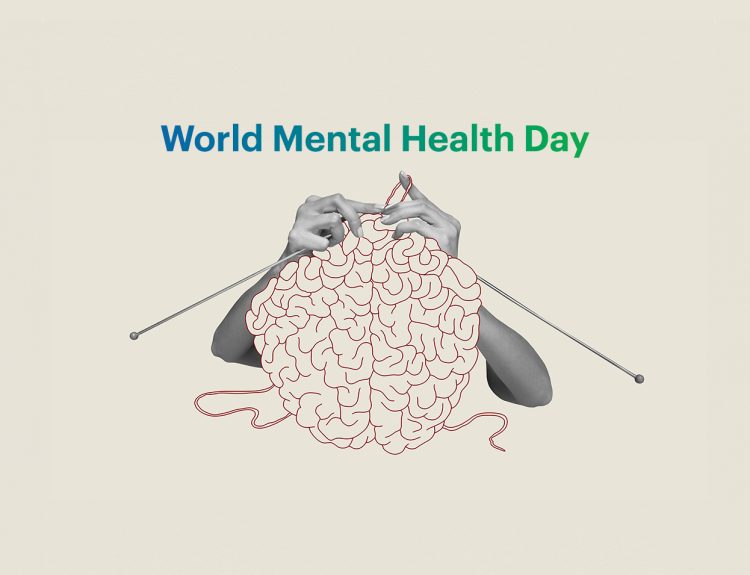Antisocial personality disorder (ASPD) is the most extensive and the best validated studied disorder of personality. Most convicts and forensic cases show ASPD symptoms, but it can also be seen in some powerful leaders.
What is Antisocial personality disorder?
The diagnostic criteria of antisocial personality disorder under the fifth edition of the Diagnostic and Statistical Manual of Mental Disorders (DSM-5) are the following:
- Abnormal patterns of disregard and violation of others’ human rights beginning in early adolescence and continues into adulthood. This pattern can also be considered as sociopathy or psychopathy.
- Must be 18 years old with a history of conduct disorder before the age of 15.
- and the occurrence of the behavior is not because of schizophrenia and bipolar disorder.
The disorder belongs to the Cluster B of personality disorders that are mostly overdramatic, attention-seeking, and have extreme interpersonal conflicts. The irresponsible, reckless, and often criminal behaviours of these people begin in early childhood or adolescence and continue into adulthood.
They usually pick fights, steal, pathologically lie, gaslight, manipulate, and violate people for their pleasure. They do not have the slightest hint of remorse or guilt. ASPD is more prevalent in men than in women. About 3% of men and only about 1% of women have this disorder.

Some studies suggest that boys who exhibit aggression and other external behavior patterns emphasize aggressive items in the definition of conduct disorder. Some say that ASPD may be underdiagnosed in females due to a lack of emphasis on aggressiveness.
The exact causes of the disorder are unknown, but researchers agree that environmental and genetic factors should be considered. The incidence of ASPD is higher in people with first degree relatives who display antisocial features.
Researchers also suggest ASPD is common in lower socio-economic settings that antisocial behavior may be part of a protective survival strategy. The likelihood of developing ASPD in adult life may increase if the individual experiences child abuse or neglect, unstable or erratic parenting, or inconsistent parental discipline.
There is a high chance that conduct disorder will evolve into an antisocial personality disorder.
Some other symptoms of Antisocial personality disorder also include the following:
- Aloofness
- Charming
- Conniving
- Cynical
- Impulsive
- Irresponsibility
- Irritability
- Social deviance
This low character development leads to maladaptive behaviour with infrequent self-awareness, low self-aware emotions, and poor impulse control.
Researchers found abnormalities in the prefrontal cortex, right cerebral hemisphere, and the hippocampus and frontal lobe injuries can result in aggressive and antisocial behaviours. These suggest that people with ASPD have deficits in the higher nervous system related to morally accepted behaviours. Some neurotransmitter studies found that serotonin regulates both aggression and impulsivity, suggesting its relations to ASPD.
Most individuals who have ASPD are least likely to believe that they need help. Since childhood, they have a history of abuse and neglect and have little trust and faith in mental health professionals. They may only seek help because of their existing medical or mental conditions such as substance abuse, depression, anxiety, and somatic symptoms.
ASPD is a severe disorder and challenging to treat as it depends on each person’s particular situation, the severity of the case, and their willingness to participate in treatment.
There are no medications approved by the FDA to treat ASPD. However, some pharmacological treatments use lithium for aggressiveness, which has a moderate effect on a specific target. Psychotherapy, which includes anger and violence management and treatment for substance abuse, is not always practical, especially if symptoms are severe.
The person cannot admit that he is a significant factor in the problem. Recently, clozapine – an antipsychotic medication has shown promising results in improving antisocial symptoms among males.
Some longitudinal studies show that individuals with ASPD mature and get burnt out over time and stop their middle age’s criminal behaviours.
How do powerful leaders with Antisocial personality disorder work?
People with ASPD also show a symptom of malignant narcissism – a term coined by psychoanalyst Erich Fromm. Fromm was a holocaust survivor and suggested malignant narcissism is severe and destructive pathology that exhibit inhumane acts by dictatorial tyrants such as Adolf Hitler and Joseph Stalin.
Their common traits are pathological narcissism with grandiosity and lack of empathy, antisocial features, paranoid thinking in the sense of persecution, and sadism.
A study pointed out that many intelligent and powerful individuals are antisocial, though a few rise on the social ladder because of their poor educational and occupational achievement.
Many sociopathic leaders are imprisoned for their self-imposed rigid ideologies. They often use their superficial charms to manipulate the masses. They instill fear with their nihilistic approach and bully people into maintaining their attained sense of power.
In the present day, some believe that malignant narcissism is seen in leaders from countries that lack democratic traditions. These leaders tend to demean, humiliate others, and violate their constituents’ rights and feelings. These presidents’ mental stability is in question in leading their countries as malignant narcissism keeps on growing.
If a president has malignant narcissism, it is expected that he will become more isolated, his behaviors will become more paranoid, and therefore, more and more dangerous.
With this, the masses should watch out for high-conflict leaders with a drive for unlimited powers. People should be concerned that these behaviors are dangerous and need to be reined in. It is only a matter of time before the people oust these leaders.

References:
American Psychiatric Association. (2013). Diagnostic and Statistical Manual of Mental Disorders, Fifth Edition.
American Psychiatric Publishing.
Cloninger, R. (2005). Antisocial personality disorder: a review.
WPA series, evidence, and experience in psychiatry; v. 8, 125-164
Eddy, B. (2019). Malignant narcissism: does the president really have it? Governor Weld says President Trump does. What does this mean?
Psychology Today: https://www.psychologytoday.com/us/blog/5-types-people-who-can-ruin-your-life/201903/malignant-narcissism-does-the-president-really
Maj, M. et al. (2005). WPA series, evidence, and experience in psychiatry; v. 8. John Wiley & Sons Ltd.
Morrison, J. (2014). DSM-5 made easy: the clinician’s guide to diagnosis. The Guilford Press. Nd. (2019). Antisocial personality disorder.
Psychology Today. https://www.psychologytoday.com/us/conditions/antisocial-personality-disorder
Neuhart, D. (2019). What exactly is malignant narcissism? : U.S. Rep Jackie Speier calls President Trump a malignant narcissist.
Psychology Today. https://www.psychologytoday.com/us/blog/narcissism-demystified/201905/what-exactly-is-malignant-narcissism
Samuel, G. (2016). Philippines president Rodrigo Duterte mental health assessment reveals tendency to violate rights and feelings.
IndependentCoUK. https://www.independent.co.uk/news/world/asia/philippines-president-rodrigo-duterte-mental-health-psychological-condition-a7355891.html
Vankin, S. (2008). Narcissistic and psychopathic leaders.
HealthyPlace: https://www.healthyplace.com/personality-disorders/malignant-self-love/narcissistic-leaders






